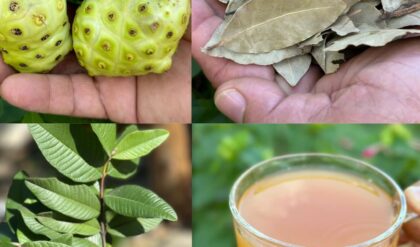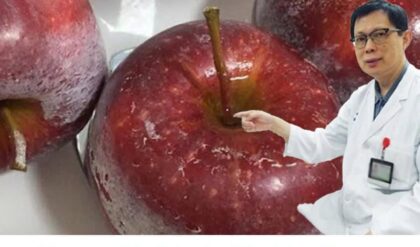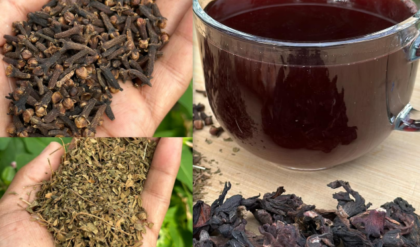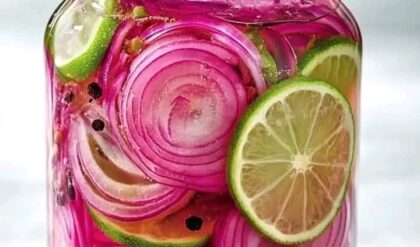Eggshells are often regarded as kitchen waste, but for gardeners, they are a hidden gem. Composed primarily of calcium carbonate, eggshells offer numerous benefits to plants, from enriching the soil to deterring pests. Utilizing eggshells in your garden is an eco-friendly way to recycle kitchen scraps while improving plant health and soil quality. In this article, we’ll dive into the many benefits of using eggshells for plants and how to incorporate them effectively into your gardening routine.

Nutritional Profile of Eggshells
Eggshells are approximately 90-95% calcium carbonate, an essential mineral that plants need to build strong cell walls. They also contain small amounts of magnesium, phosphorus, and potassium—minerals that contribute to overall plant health. Calcium from eggshells is particularly beneficial for preventing certain plant diseases and promoting robust growth.
Benefits of Using Eggshells for Plants

- Improves Soil Calcium Levels
- Calcium is crucial for cell wall development in plants, contributing to sturdy stems and leaves. Adding eggshells to the soil is an effective way to increase calcium content, particularly for plants that are prone to calcium deficiencies, such as tomatoes, peppers, and squash.
- Prevents Blossom End Rot
- Blossom end rot, a common issue in tomato and pepper plants, is caused by a calcium deficiency. Incorporating crushed eggshells into the soil can help provide a steady calcium source, preventing this unsightly and damaging condition from affecting your crops.
- Enhances Soil Structure
- Eggshells help improve soil structure by aerating the soil and creating small pockets of air. As the eggshells break down, they provide space for roots to expand, enhancing drainage and allowing plants to access nutrients more efficiently.
- Natural Pest Deterrent
- Crushed eggshells act as a natural pest deterrent, especially against soft-bodied pests like slugs, snails, and certain types of caterpillars. The sharp edges of crushed eggshells make it difficult for these pests to navigate, reducing their impact on your plants without the need for harmful pesticides.
- Balances Soil Acidity
- Eggshells are alkaline, meaning they can help balance soil pH levels if your garden soil is overly acidic. Maintaining an optimal pH level is essential for nutrient absorption in plants, making eggshells an affordable and natural way to create a more favorable growing environment.
- Reduces Garden Waste
- Using eggshells in the garden is an excellent way to recycle waste that would otherwise end up in the trash. This sustainable gardening practice not only benefits your plants but also contributes to reducing household waste and promoting eco-friendly gardening methods.
- Provides Trace Minerals
- In addition to calcium, eggshells contain trace minerals like magnesium, which plays a role in chlorophyll production and phosphorus, which supports root and flower development. Though these are present in small quantities, they can still contribute to healthier plants over time.
How to Use Eggshells in the Garden

To get the most benefit from eggshells, it’s important to prepare and use them properly. Here are a few practical ways to incorporate eggshells into your gardening routine:
1. Crushed Eggshells as a Soil Amendment
- Rinse eggshells thoroughly to remove any residual egg white, then let them dry. Once dried, crush the eggshells into small pieces, using your hands or a mortar and pestle. Sprinkle the crushed eggshells directly into the soil around your plants or mix them into the potting soil. Over time, the eggshells will decompose and release calcium and other minerals into the soil.
2. Eggshell Powder for Fast Calcium Release
- For a quicker calcium release, grind eggshells into a fine powder using a blender or coffee grinder. This powder can be mixed into the soil, added to compost, or dissolved in water for a quick calcium boost. Eggshell powder breaks down faster than crushed shells, making it a great option if you need to address calcium deficiencies quickly.
3. Eggshell Tea
- Eggshell tea is an easy way to provide liquid calcium for your plants. To make eggshell tea, boil crushed eggshells in water, let it steep for 24 hours, and then strain the mixture. Use this calcium-rich “tea” to water your plants once a month, especially those with higher calcium needs.
4. Compost Additive
- Adding eggshells to your compost pile enhances the calcium content of the finished compost. Eggshells take time to decompose, so breaking them down into small pieces will speed up the process. When added to compost, eggshells can help balance acidity, creating a nutrient-rich compost that supports healthy plant growth.
5. Pest Barrier
- To keep slugs, snails, and other pests at bay, sprinkle crushed eggshells around the base of your plants. The jagged edges of the shells create a barrier that deters these pests from reaching your plants. Be sure to replenish the eggshells after rain or heavy watering to maintain the protective barrier.
Which Plants Benefit Most from Eggshells?
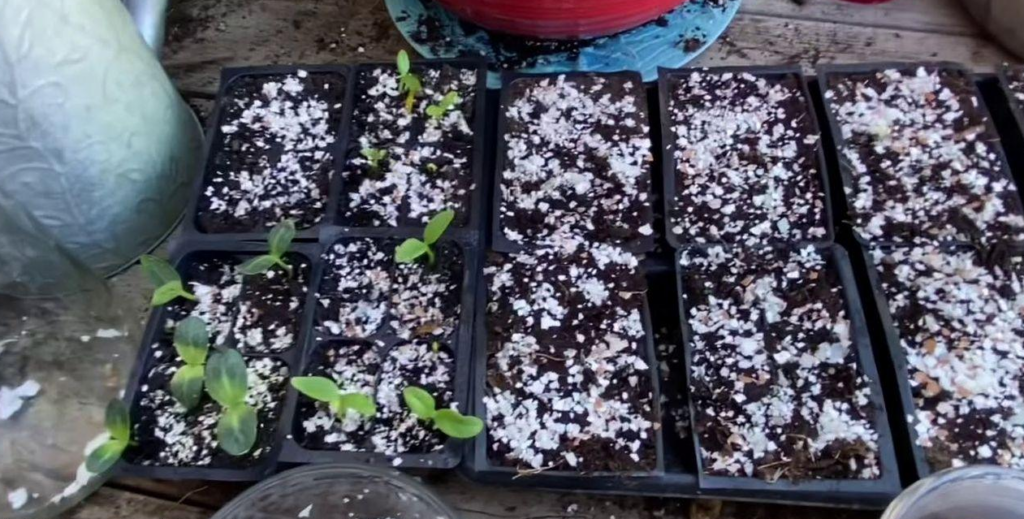
Certain plants are particularly responsive to the calcium boost provided by eggshells:
- Tomatoes: Eggshells help prevent blossom end rot, a common issue in tomato plants.
- Peppers: Like tomatoes, peppers benefit from the extra calcium to avoid blossom end rot.
- Squash and Zucchini: Eggshells support cell wall strength, reducing the risk of disease in these plants.
- Broccoli and Cauliflower: Members of the brassica family benefit from eggshells due to their high calcium requirements.
- Flowering Plants: Eggshells can encourage more vibrant blooms in flowering plants like roses and hydrangeas.
Important Considerations

While eggshells are highly beneficial for most plants, they should be used in moderation. It’s best to crush them into smaller pieces or grind them into powder to ensure they break down effectively in the soil. Additionally, eggshells should be thoroughly cleaned before use to avoid attracting pests.
Final Thoughts
Using eggshells in your garden is an effective, sustainable way to boost plant health. They provide a slow-release source of calcium, enrich soil structure, deter pests, and contribute trace minerals essential for plant growth. By incorporating eggshells into your gardening routine, you can give your plants a natural advantage while reducing kitchen waste.
With minimal effort, eggshells can transform your garden into a flourishing, sustainable haven for healthy plants. Whether you’re growing vegetables, flowers, or herbs, the humble eggshell has a role to play in nurturing your garden naturally.
